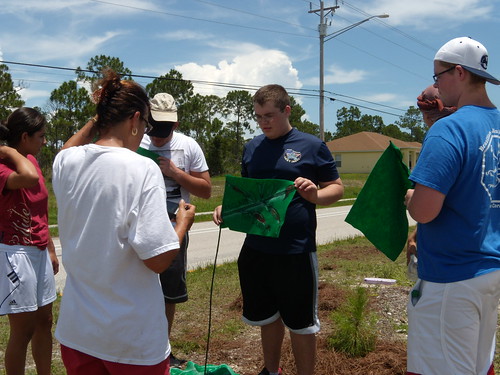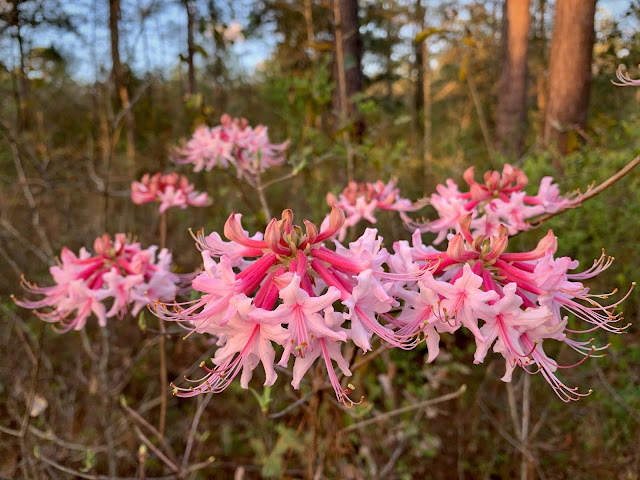Reaching Out and Digging In for Native Pines
 |
| Amanda Ugarte, planting organizer and Oasis High Charter School student. |
On Tuesday, July 8, 2014, representatives from the Coccoloba Chapter of the Florida Native Plant Society, students from Oasis and Mariner High Schools in Cape Coral, and other volunteers planted twenty native Slash Pine trees, donated by the Florida Forest Service. The planting was arranged by Oasis High Charter School student Amanda Ugarte. These trees supplemented a prior planting in the median on Oasis Boulevard between SW 37 Street and SW 37 Terrace, where some trees from a previous planting perished. Two species of native bunch grass were also added to the median.
Students assisting with the planting on this toasty day were Alex Boesch, Christopher Byron, Sara Logan, Jillian Lucia, Anthony Morales, Branden Pearson, and Amanda Ugarte. Sara’s father, Tom Logan assisted, as did Pascha Donaldson, Martha Grattan, Russ Ringlund and Marlene Rodak.
 |
| Jillian Lucia (L) and Sara Logan (R) take turns trying to dig a hole in the hard, rocky ground. |
South Florida Slash Pines are often misunderstood by residents of the area. These hard yellow pines can reach heights of 80’ to 100’ tall. The durable bark is hard and scaly with plates. Slash Pines have extensive root systems with a moderate taproot. Southern Slash Pines are only found in south Florida, and the seeds propagated for these trees were likely harvested by the Florida Forest Service in nearby Okaloacoochee Slough State Forest.
 |
| A newly-planted 3-gal slash pine with pine straw mulch. |
Perhaps one of the best aspects of the slash pine is that it is self-mulching. Once the tree is tall enough, it will start to shed enough needles to retain soil moisture and control surrounding weeds. Plus, the lovely slash pine needles break down into nutrients and provide microbes to build healthy soil. Once the tree is between 10 and 15 years old, it will produce a good pine cone crop about every four years.
 |
| (left to right), Amanda Ugarte, Pascha Donaldson, Anthony Morales, Branden Pearson, Christopher Byron and Alex Boesh preparing their native flags. |
• More Florida Forest Services Slash Pine trees will be planted on Saturday, July 12 on Veterans Parkway. This planting is being coordinated by Russ Ringlund and will enlist the help of the Cub Scouts.
This article is provided by the Coccoloba Chapter of the Florida Native Plant Society. The Society meets at Calusa Nature Center on the second Thursday of each month, between September and April, at 6:30 for socializing. Meetings start at 7 pm. All are welcome to join this friendly bunch and learn more about native plants. Visit www.FNPSCoccoloba.org for more information or call (239) 273-8945.
---
posted by Laurie Sheldon




Comments